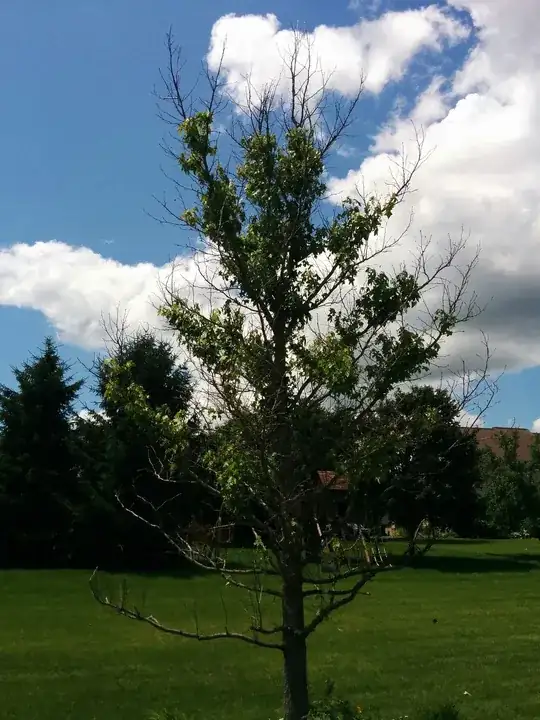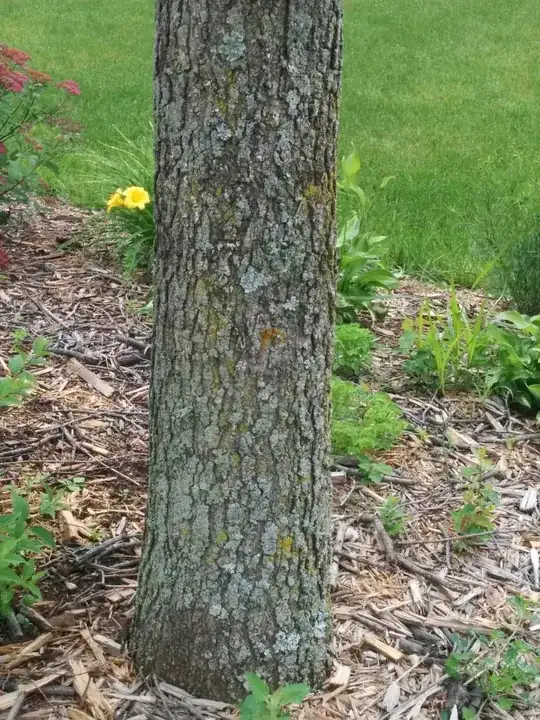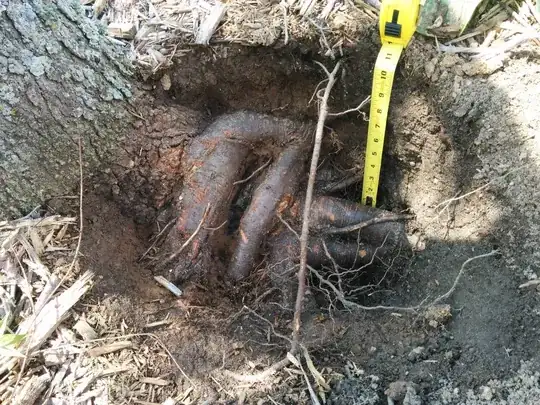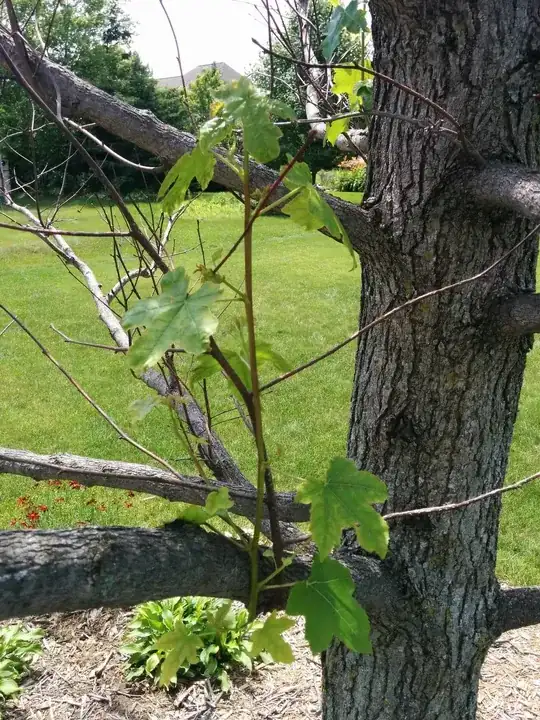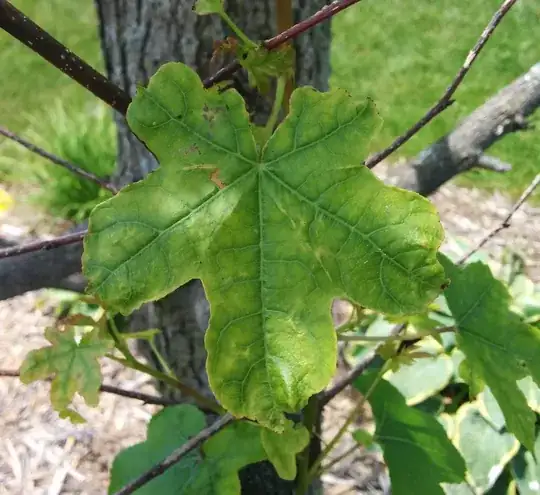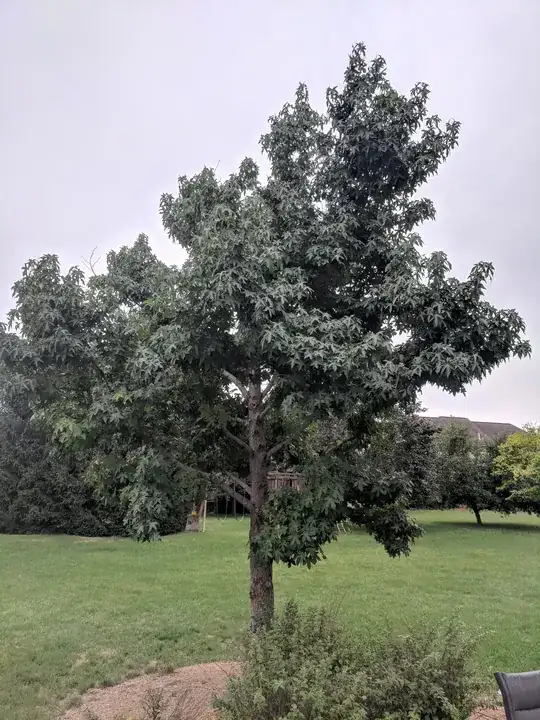How does one diagnose Sugar Maple problems? There is some green on the trunk and the leaves haven't filled out for a couple years.
Climate: Southern Michigan
Soil: ~18 inches of topsoil with clay underneath
Fertilizers used: 1) Jobe's regular tree spikes each spring, 2) Osmocote Plus Smart-Release Plant Food for the bushes near the tree, and 3) composted manure.
Known insects nearby: Clover mites (no idea if these are contributing to the problem)
2018 update - It's been 3 years since I posted the original question and ended up cutting the girdled root that was constricting water to the others. The tree has now been growing new limbs and the leaves look healthy. As one respondent said, it still doesn't look like a normal tree and may never fully get there, but it's certainly no longer in danger of dying and falling. See the last picture for the 2018 update.
